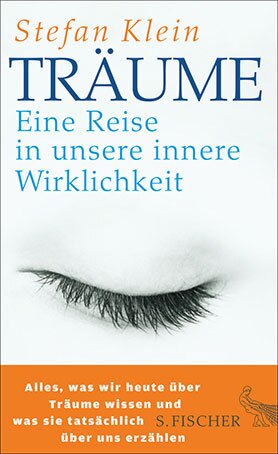Stefan Klein
Träume
[Dreams. The science of unlocking our inner reality]

S. Fischer Verlag
2014
ISBN 978-3-10-039615-0
288 Pages
Publisher’s contact details

